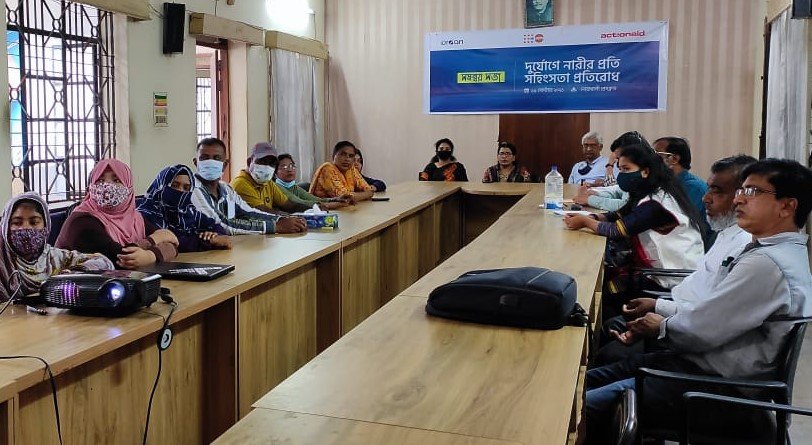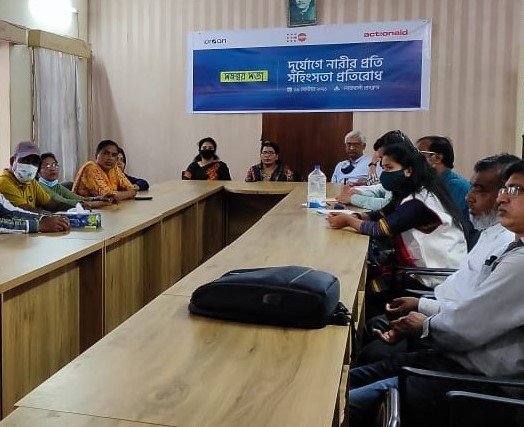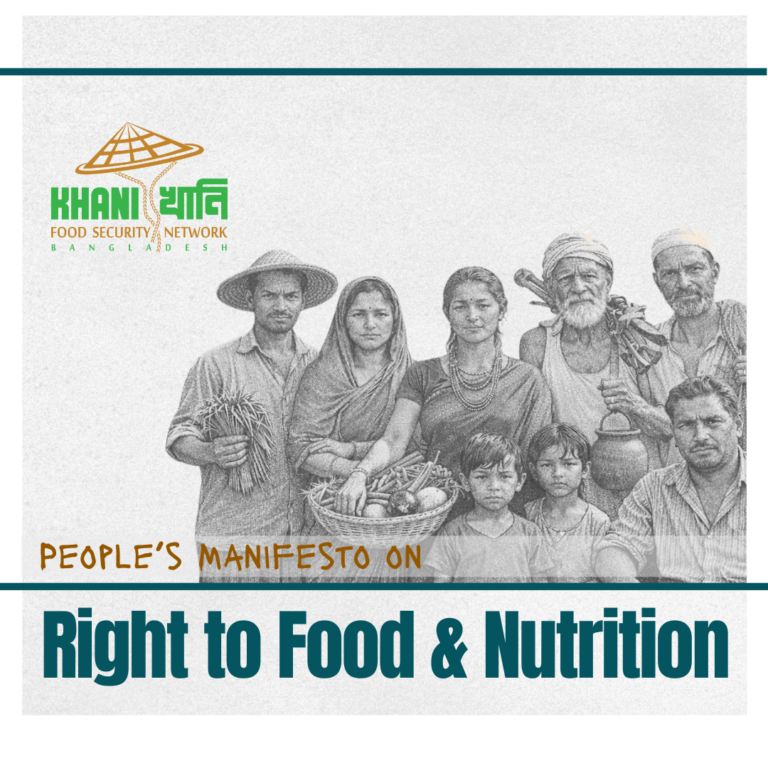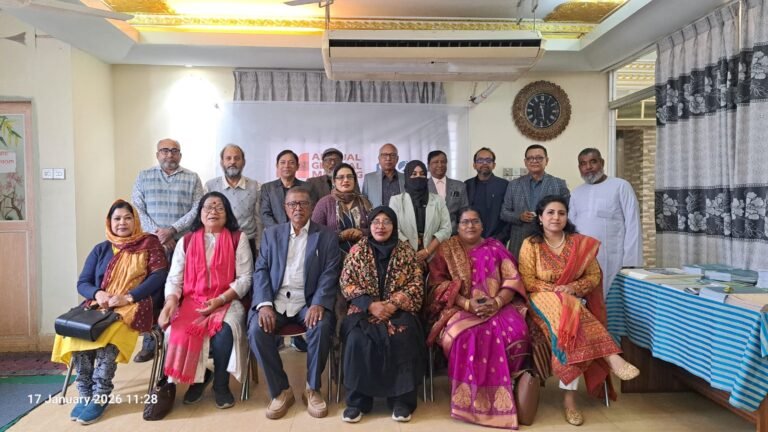
Education is a salvation for all the girls to get protection from violence and exploitation with provided skills and hope for a brighter future. But the recent outbreak of the COVID 19 pandemic created an alarming rise to the rate of child marriage in Bangladesh as girls are mostly staying home owing to the long closure of educational institutions. The speakers expressed their concern regarding crises and specific challenges faced by girls in the quarterly coordination meeting of GBViE Platform, Noakhali held on September 19, 2021, at Noakhali Press Club Hall Room.
Women Rights and Gender Equity Deputy Manager of ActionAid Bangladesh Taslima Akter, Noakhali Rural Development Society (NRDS) Executive Director Abdul Awal, Bandhon Executive Director Aminuzzaman Milon, Naari Odhikar Jot Chairperson Laila Pervin, Prochesta Founder Rowshon Akter Lucky, Save the Childer Deputy Director Salahuddin, We Can Noakhali Conveyer Nurjahan Rini joined the event moderated by Nurul Alam Masud, Chief Executive of Participatory Research Action Network- PRAAN.
Taslima Akter, Deputy Manager of Women Rights and Gender at AAB delivered her opening speech at the meeting. Mentioning the recent news on a school girl present alone in a classroom in Satkhira district because all her classmates are married now, she said the same incidents are happening all over the country. We are working on collecting data on these and going to take the findings to a national level dialogue with the policymakers and activists.
Monir Ahmed from Kendriya Krishok Moitry mentioned that many child marriages are happening here in Subornochar every day. These girls, along with many other girls are being dropped out of schools either because of poverty, lack of awareness, and due to kind of indifference has been created towards educating especially girls after this long closure of educational institutions. We must address the reasons and also the negative impacts in our discussion.
On the overall situation of women in Noakhali, Abdul Awal, ED of NRDS said, ‘We have strong movements in Noakhali. Most of the organizations are positive about this issue. Though I think we are still lacking widespread social initiatives, we have strong ground here. Side by side with local movements, this is necessary to raise voices on ongoing recurrences of child marriages as well as disseminating daily news on this issue. But this is not happening. These issues must be considered structurally and the state should nurture all the relevant social protection to eliminate the root causes of child marriage and dropout.
Talking about implementing exiting laws to stop child marriage, Advocate Golam Akbar focused on the gaps of the Child Marriage Restraint Act 2017. In its special provision of Article 19 states ‘Notwithstanding anything contained in any other provision of this Act, if a marriage is solemnized In such manner and under such special circumstances as may be prescribed by rules in the best interests of the minor, at the direction of the court and with the consent of the parents or the guardian, of the minor, as the case may be, it shall not be deemed to an offense under this Act.’ This is no doubt the destructive side of the law. Until amended, the government should ensure that the provision permitting child marriage will be used rarely and carefully.
Laila Pervin, Chairperson of Naari Odhikar Jot and Principal of N. Little Star School said that staying away from school has increased the risks of child marriages as it increases the risks of dropping out. We should all come together to intensify the collaborative efforts to address the losses.
More than 25 people from different organizations joined the meeting. The participants proposed number of measures to be taken that they think could serve the purpose of eliminating child marriage. School and community-based awareness programs, research and study all over the country, virtual campaigns, etc were the remarkable proposals from the speakers.
Decisions were taken to accelerate activities to form sexual harassment monitoring committee educational institutions which were slowed down because of the restrictions of the pandemic. The network members also agreed on different Upazila based demonstration events on the eve of the upcoming 16 Days of Activism against violence against women.




